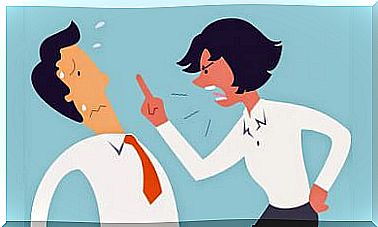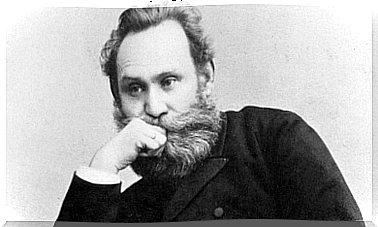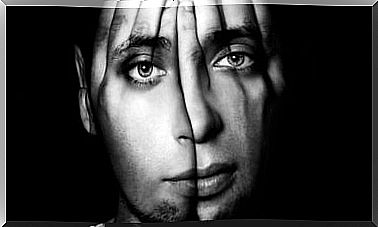What Social Class Do You Belong To?

We constantly hear about social classes: the upper class, the lower class, the working class, etc., but what are social classes? How is a social class formed? The truth is that people interact in different spaces. We can discuss a football game in the bar or chat at the school gate while we wait for the children to come out. We queue at the bank to deposit money or enjoy a movie at the cinema. All these places and many more are social spaces in which we establish relationships with other people who belong to different social classes.
According to Pierre Bourdieu, within social spaces there are different capitals that will establish which social class we belong to. When talking about capital, the first thing that comes to mind is money and, therefore, that the economic capacity of each person defines their social class. This makes sense but, to a certain extent, it is a lie. Capital, from this conception, is not understood only as money or economic capacity. Capital can also be objects, practices and knowledge that we can accumulate.
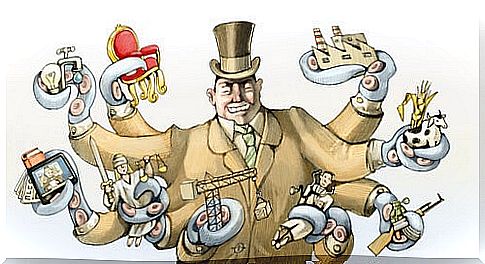
Money would be a capital, but also the possession of a house or a mobile. A capital would also be constituted by all the knowledge we learn as well as the curriculum. If we compare a very intelligent person without money with a person with a lot of money and little knowledge, we could affirm that both have a lot of capital, although of different types.
But the capital does not stop there, cultural knowledge is also capital, such as knowing how to behave during a formal dinner, learning about a folk dance or owning a painting by a famous painter.
Bourdieu’s capitals
Some of the capitals that we find in social spaces are the following:
- Economic capital : it is made up of factors of production, land, factory and jobs, goods, properties and cars. The maximum exponent is money. This capital is the most powerful and stands out above the other capitals although, depending on the social space, other capitals may be more important.
- Social capital : formed by the set of social relationships that we establish with other people. This social capital is made up of contacts, acquaintances, friends and relatives.
- Cultural capital: this capital allows access to refined consumption or academic recognition. It ranges from the accumulation of extraordinary objects, such as works of art, to the achievement of diplomas and academic degrees.
- Symbolic capital: this capital is made up of the resources available to an individual based on honor, prestige or recognition. It is the value that one has within a culture. A war hero, for example, may have token capital if he decides to run as a politician.
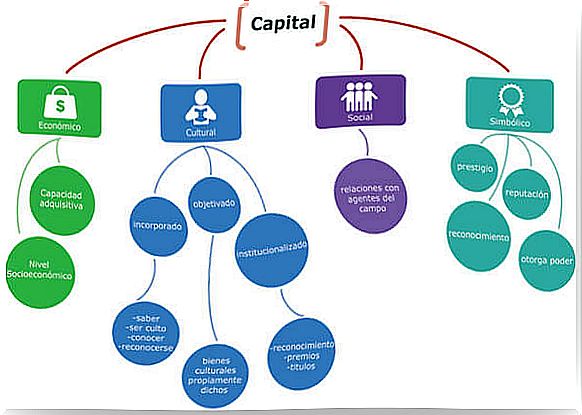
From social capital to social class
Social classes do not arise only because of economic capital or purchasing power. A person does not belong to a certain social class only because of the money and goods he possesses. Social classes arise from the relationships that are created between the different capitals.
Thus, a person can have little money (economic capital), but also have many friends who have a high economic capital (social capital) and belong to a high social class. However, another person may have a lot of money (economic capital) and lack education and do not know how to behave publicly (cultural capital) so they would belong to a low social class.
But the formation of social class is much more complicated than these examples. This network of relationships between capitals that occurs in different social spaces ranges from where you study to what music you listen to, including the sports you practice, what you eat and the places you have to go to. All of these relationships intertwine to form our social class.
In this way, the relationships between people and capitals in the different social spaces make fields appear where there is a common capital. An example is the academic field, in which the university world meets, which has a common capital.
Within these fields appear hierarchies, that is, differences in the ostentation of power. This division, which occurs within each field, leaves us two options, whether you are one of those who have power or those who aspire to have it. In the case of the academic field, teachers are those who hold power and students who aspire to hold it.
When talking about social class, it is common to forget where social classes come from and education and culture are discredited to the detriment of money. Understanding all the complexity that the formation of social class entails, when you hear someone say that a certain person is of a certain social class, you will recognize much better what places them in it.



